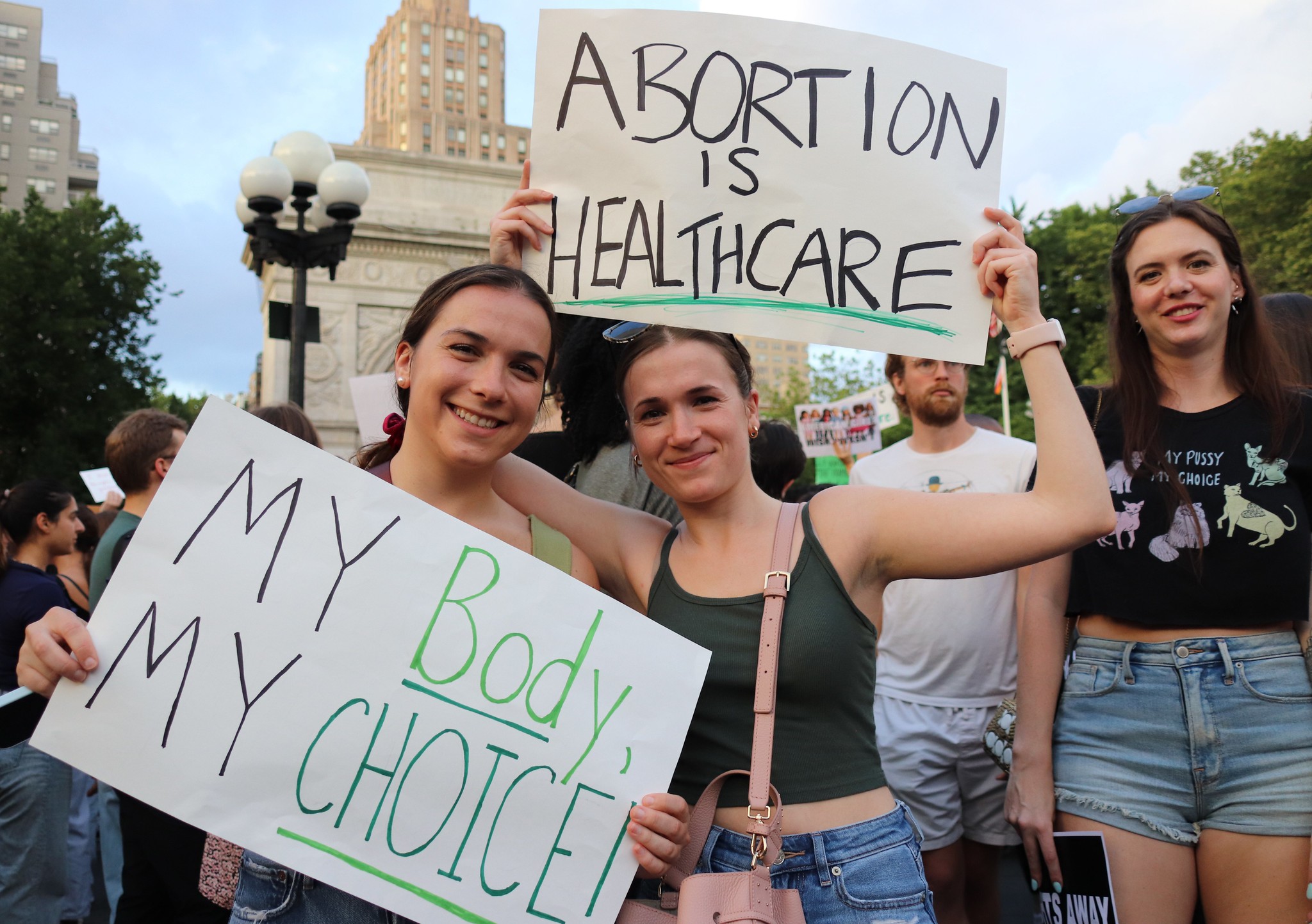Anyone who has lost a loved one to a longtime illness knows that you can brace yourself for the worst but it does not change the shock and pain of loss.
In May, someone working within the U.S. Supreme Court leaked an anticipated decision on the legality of abortion. Advocates knew that the loss of abortion care was a likely possibility and yet, when the news dropped on June 24 that the Roe v. Wade decision was indeed being overturned, shock rang out around the world. People were stunned — myself included.
You may unsubscribe from any of our newsletters at any time.
My heart breaks for Americans who are being deprived of basic human rights. Who are we if we do not own our bodies? Yet, as a longtime activist for abortion rights in Canada, I am also deeply frustrated by the way U.S. imperialism informs how Canadians understand abortion access here at home.
Almost immediately, Canadians responded to the news of Roe v. Wade by calling on Trudeau to codify abortion access into law. “We need a law!” yelled well-meaning Canadians concerned about the protecting abortion rights. Borne from the assumption that the U.S. reality is our own, misguided pro-choice Canadians started unknowingly parroting anti-choice rhetoric.
Anti-abortion activists in Canada have long been calling for an abortion law. In fact, prior to the reversal of Roe v. Wade, the only time I had ever heard the “Canada needs a law!” slogan was on the placards of anti-choice activists at March for Life rallies.
Canada does not need new laws around abortion. Canada needs better access.
Legally, abortion rights have existed in Canada since the 1960s but prior to 1988, accessing an abortion required presenting your case to a committee of three doctors. The gatekeeping of abortion meant most people still sought out illegal, and often dangerous, procedures.
Then Dr. Henry Morgentaler, a Holocaust survivor and Canadian physician, started performing abortions in clinics across Canada and dared the government to stop him. In 1988, R. v. Morgentaler ruled in favour of abortion rights and found that the use of therapeutic abortion committees were contrary to Section 7 of the Charter, which guarantees life, liberty and security of the person.
Following the U.S. Supreme Court decision overturning Roe v Wade, the Government of Canada must look for ways to better protect abortion rights in Canada. @NAWL_ANFD and @actioncanadashr explain why we don’t need a new abortion law in Canada. ?1/6 pic.twitter.com/zXnlLi8hDt
— National Association of Women and the Law (@NAWL_ANFD) June 24, 2022
Since then, most Canadians consider the issue settled. There is a strong anti-abortion movement in Canada and there have certainly been private member’s bills attempting to curtail access. But study after study has shown that the vast majority of Canadians are not only pro-choice but tired of talking about it. In fact, some research suggests that attacks on abortion rights in the Unites States actually increases support for abortion rights here at home. As Canadians see what is at stake elsewhere, they become further rooted in their support of abortion rights at home.
It’s why I was so frustrated to see Canadians responding to the reversal of Roe v. Wade with demands for an abortion law.
More on Broadview:
- Why P.E.I. didn’t provide abortions for 35 years
- Canada promised to resettle 40,000 Afghan refugees, but many are still waiting
- 60 years ago, Canada’s health-care system began amid a storm of controversy
In Canada, unlike the U.S., abortion is health care. We don’t have a law for knee replacements, heart surgery or wisdom teeth extractions. These are standard medical procedures. By requesting a special law for abortion, we would be treating reproductive care as separate from health care and opening up the door for current and future governments to curtail abortion rights. Pro-choice supporters in Canada fighting for an abortion law would be recreating the very conditions that allowed Roe v. Wade to be reversed in the first place.
What Canadians need to be fighting for is increased access. In rural, remote and Northern communities, access to abortion care is almost non-existent. In P.E.I., abortion access was not truly possible until 2016. Abortion care remains precarious in New Brunswick.
We do not need to codify abortion access in law but we do need to hold provinces accountable for not enforcing the Canada Health Act, which guarantees each Canadian medical care. We need increased funding for rural and remote health care providers. We need better access to information on our reproductive rights and resources in Canada. We need to transform our outrage about Roe v. Wade into better abortion access in Canada because without access, there is no choice.
***
Julie S. Lalonde is a women’s rights advocate, public educator and media commentator based in Ottawa.














Knee replacements and heart surgery do not stir the emotions that the abortion topic does. History reminds us of just how quickly right wing governments can attain power and it doesn’t take much to begin an irrational political movement. Some may be tired of talking about it but I, for one, would feel better if the right to abortion was somehow made a non reversible right in Canada along with easy access for all Canadian women. We have a well functioning democracy in Canada which many Canadians take for granted. With the right person in power it is possible we could find ourselves in a similar situation as the US.
There are two big concerns with codifying abortion in the law.
1. That law will be negotiated on, because that is how politics works. What could be a law that enshrines abortion is also open to be negotiated down. Currently there are no limits on when, where, why, or how, aside from what doctors can safely do. Any negotiation will be to the detriment of that right.
2. If we put in one abortion law, we risk the next government opening the doors to other abortion laws. Right now proposals are struck down as a violation of the charter of rights and freedoms and the right to medical care. To put anything about abortion in the law would say that we let politicians make the decisions, which is always a scary thing.
Abortion is such a highly charged issue and I get the desire to encase the right to obtain one in bullet-proof glass. But we aren’t playing defense against a strong pro-life coalition here. We are dealing with governments that are chipping away at the funding though, which is far more concerning.